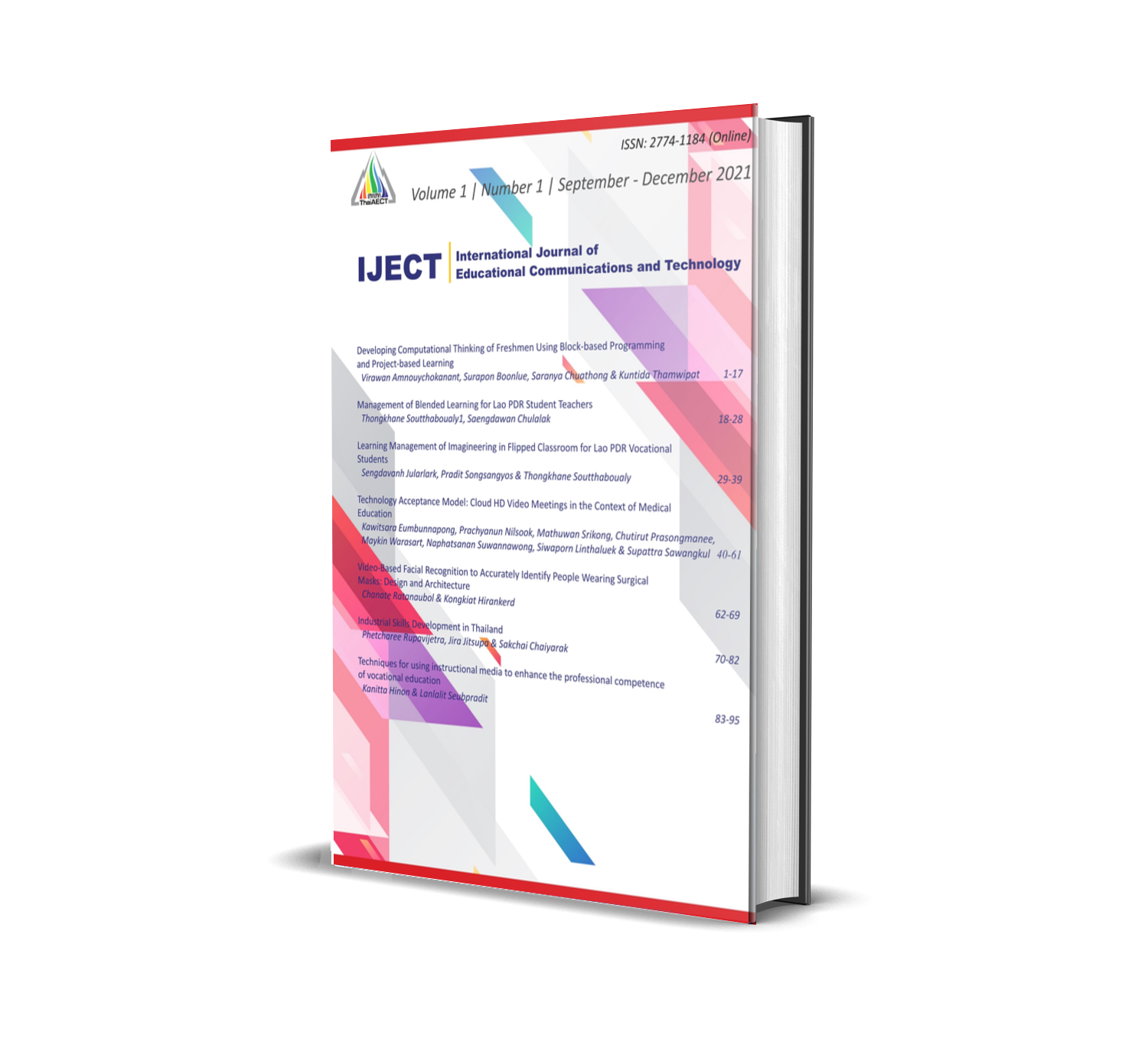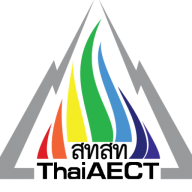Innovative Practices in Vocational Education Administration
Keywords:
Innovative Practices, Vocational Education, AdministrationAbstract
This paper delves into the profound impact of Information and Communication Technology (ICT) and emerging innovations on vocational education, particularly their role in shaping the culture of educational personnel. As society undergoes rapid technological development, vocational education systems must adapt, altering their learning and teaching practices. However, these changes also present educational institutions with greater challenges, necessitating the efficient use of limited resources to meet society's evolving needs. This paper contends that innovation defined as a deliberate, orderly, and risky change introduced to improve efficiency and boost productivity is key to addressing these challenges. Specifically, it examines the adoption of innovative practices in vocational education administration to enhance institutional standards, quality, and effectiveness in the context of a globalizing world. Key discussions include the concepts and types of innovation, the implications of creativity and innovation in vocational education administration, the areas where innovative practices can be applied, and the strategies that improve learner engagement. The paper also outlines the rationale for implementing innovations in vocational institutions and addresses the associated challenges.
References
Aditya, B.R., Ferdiana, R., & Kusumawardani, S.S. (2022). A barrier diagnostic framework in process of digital transformation in higher education institutions. Journal of Applied Research in Higher Education, 14(2), 749-761.
Alrowwad, A., Abualoush, S.H., & Masa’deh, R. (2020). Innovation and intellectual capital as intermediary variables among transformational leadership, transactional leadership, and organizational performance. Journal of Management Development, 39(2), 196-222.
Akpan, C. P. (2016). Innovative practices in school administration. International Journal of Educational Administration, Planning and Research (IJEAPR), 8(1), 45-53.
Arredondo-Trapero, F.G., Vázquez-Parra, J.C., & González-Martínez, M.D.J. (2021). Teachers’ perceptions of ICT issues in education: an approximation by gender and region in Mexico. On the Horizon, 29(3), 101-116.
Brunetti, I., & Corsini, L. (2019). School-to-work transition and vocational education: a comparison across Europe. International Journal of Manpower, 40(8), 1411-1437.
Davis, J. (2017). Innovative teaching strategies that improve student engagement. Association for Middle Level Education. Open Access.
Dos Santos, V.M., Cernev, A.K., Saraiva, G.M.M., & Bida, A.G. (2022). Faculty experience and digital platforms in education. Revista de Gestão, 29(3), 252-266.
Fraser, S. (2019). Understanding innovative teaching practice in higher education: a framework for reflection. Higher Education Research & Development, 38(7), 1371-1385.
Gomez-Trujillo, A.M., & Gonzalez-Perez, M.A. (2022). Digital transformation as a strategy to reach sustainability. Smart and Sustainable Built Environment, 11(4), 1137-1162.
Hinon, K., & Seubpradit, L. (2022). Guidelines for using instructional materials of Vocational Education in Thailand during COVID-19. International Journal of Educational Communications and Technology, 2(1), 7-17.
Koster, F., & Benda, L. (2020). Innovative human resource management: measurement, determinants and outcomes. International Journal of Innovation Science, 12(3), 287-302.
Kundra, T. (2018). Innovative practices in teacher education programme. International Journal of Applied Research 2018, 4(4), 238-240.
Lee, S.-Y., Lee, J.C.-K., & Lam, B.Y.-H. (2022). Does renaming improve public attitudes toward vocational education and training in higher education? Evidence from a survey experiment. Education + Training, 64(3), 347-359.
Lloyd, G.A., Dean, B.A., Eady, M.J., West, C., Yanamandram, V., Moroney, T., Glover-Chambers, T., & O’Donnell, N. (2022). Academic’s perceptions of work-integrated learning in non-vocational disciplines. Higher Education, Skills and Work-Based Learning, 12(5), 809-820.
Longo, M.C., & Narduzzo, A. (2017). Transactive knowledge from communities of practice to firms: An empirical investigation of innovative projects performance. European Journal of Innovation Management, 20(2), 291-311.
Lubienski, C., & Perry, L. (2019). The third sector and innovation: competitive strategies, incentives, and impediments to change. Journal of Educational Administration, 57(4), 329-344.
Menon, S., & Suresh, M. (2020). Synergizing education, research, campus operations, and community engagements towards sustainability in higher education: a literature review. International Journal of Sustainability in Higher Education, 21(5), 1015-1051.
Messmann, G., Mulder, R.H., & Palonen, T. (2018). Vocational education teachers’ personal network at school as a resource for innovative work behaviour. Journal of Workplace Learning, 30(3), 174-185.
Natarajan, U., Lim, K.Y.T., & Laxman, K. (2021). A national vision for information and communication technologies in education: reflections on Singapore’s ICT technologies Masterplans. International Journal of Educational Management, 35(5), 943-954.
NGLC. (2021). Next Generation Learning Challenges. Access on: December 2, 2022. Available from: https://www.nextgenlearning.org/
Nicolás-Agustín, Á., Jiménez-Jiménez, D., & Maeso-Fernandez, F. (2022). The role of human resource practices in the implementation of digital transformation. International Journal of Manpower, 43(2), 395-410.
Noopur, N., & Dhar, R.L. (2020). Knowledge-based HRM practices as an antecedent to service innovative behavior: a multilevel study. Benchmarking: An International Journal, 27(1), 41-58.
Paavizhi, K., & Saravanakumar, AR. (2019). Innovative and best practices in higher education. Conference: Challenges in Quality Sustenance in Higher Education, At APA College, Palani.
Paletta, A., Alimehmeti, G., Mazzetti, G., & Guglielmi, D. (2021). Educational leadership and innovative teaching practices: a polynomial regression and response surface analysis. International Journal of Educational Management, 35(4), 897-908.
Phakamach, P., Onsampant, S., Wachirawongpaisarn, S., Panjarattanakorn, D., Phomdee, R., & Suphasophon, C. (2021). An educational innovative organization in Thailand 4.0. Proceedings of the 10th Payao Research Conference 2021, January 28-29, 2021. 3513-3528.
Phakamach, P., Senarith, P., & Wachirawongpaisarn, S. (2022). The metaverse in education: the future of immersive teaching & learning. RICE Journal of Creative Entrepreneurship and Management, 3(2), 75-88.
Phakamach, P., Wachirawongpaisarn, S., Phomdee, R., Sinlapee, A., & Panjarattanakorn, D. (2021). Innovative practices in higher education administration. Proceedings of the 2nd RMUTR International Conference 2021, July 7-9, 2021. 246-257.
Pucciarelli, F., & Kaplan, A. (2022). Transition to a hybrid teaching model as a step forward toward responsible management education?. Journal of Global Responsibility, 13(1), 7-20.
Sadeghi Boroujerdi, S., Hasani, K., & Delshab, V. (2019). Investigating the influence of knowledge management on organizational innovation in higher educational institutions. Kybernetes, 49(2), 442-459.
Saengkaew, P., Soeikrathoke, P., Wachirawongpaisarn, S., & Phakamach, P. (2021). An organizational elements of educational innovation in the digital era for vocational education institutions under the new normal situation in Thailand. Vocational Education Innovation and Research Journal, 5(2), 75-89.
Santosa, J., Simões, A., & Margarida, F. (2019). Innovative pedagogical practices in higher education: an integrative literature. Nurse Education Today, 72, January 2019, 12-17.
Schildkamp, K., Wopereis, I., Kat-De Jong, M., Peet, A., & Hoetjes, I. (2020). Building blocks of instructor professional development for innovative ICT Use During a Pandemic. Journal of Professional Capital and Community, 5(3/4), 281-293.
Sirakaya, M., & Cakmak, E.K., (2018). Effects of augmented reality on learner achievement and self-efficacy in vocational education and training. International Journal for Research in Vocational Education and Training (IJRVET), 5(1), 1-18.
Terentyeva, I.V., Kirillova, O., Kirillova, T., Pugacheva, N., Lunev, A., Chemerilova, I., & Luchinina, A. (2018). Arrangement of cooperation between labour market and regional vocational education system. International Journal of Educational Management, 32(6), 1041-1055.
UNESCO-UNEVOC Institute for information technologies in education. (2020). Trends mapping study on the future of TVET teaching. UNESCO Digital Library. 1-47.
UNESCO and Commonwealth of Learning. (2017). Using ICTs and blended learning in transforming TVET. UNESCO Digital Library. 200-216.
Vandavasi, R.K.K., McConville, D.C., Uen, J.-F., & Yepuru, P. (2020). Knowledge sharing, shared leadership and innovative behaviour: a cross-level analysis. International Journal of Manpower, 41(8), 1221-1233.
Varshney, B. (2014). Innovative practices in teacher education. Journal of Education and Practice, 5(7), 95-101.
Wong, T.M. (2018). Teaching innovations in Asian higher education: perspectives of educators. Asian Association of Open Universities Journal, 13(2), 179-190.
Zhao, Y., & Ko, J. (2020). How do teaching quality and pedagogical practice enhance vocational learner engagement? A mixed-method classroom observation approach. International Journal of Educational Management, 34(6), 987-1000.
Downloads
Published
How to Cite
Issue
Section
License
Copyright (c) 2023 International Journal of Educational Communications and Technology

This work is licensed under a Creative Commons Attribution-NonCommercial-NoDerivatives 4.0 International License.







